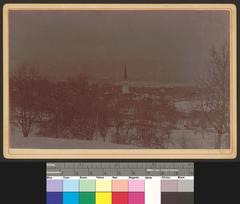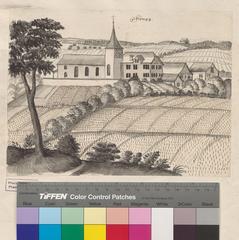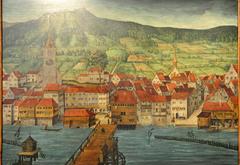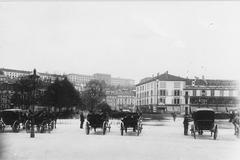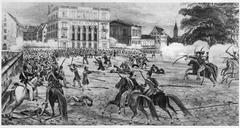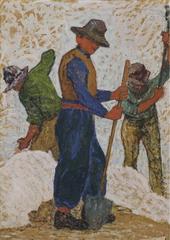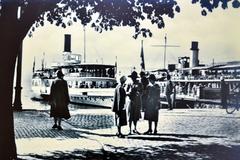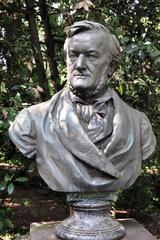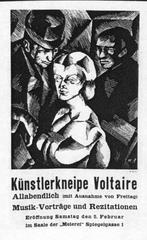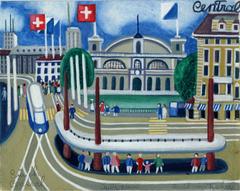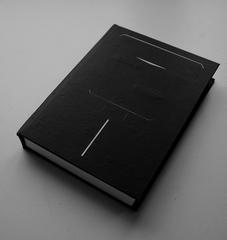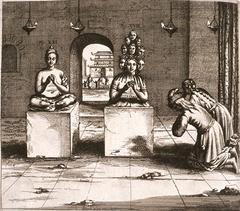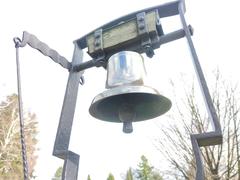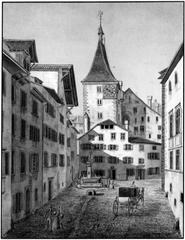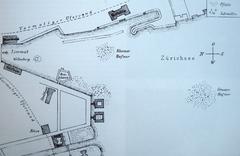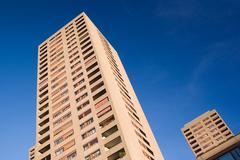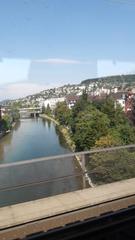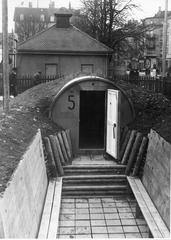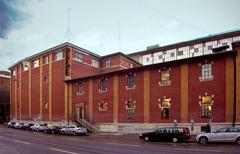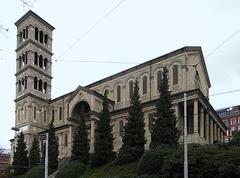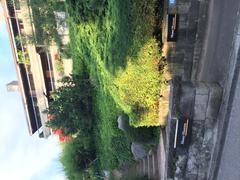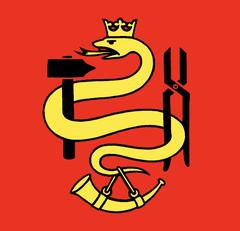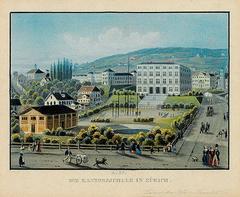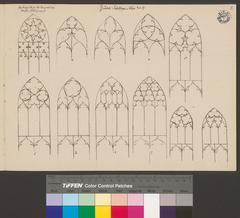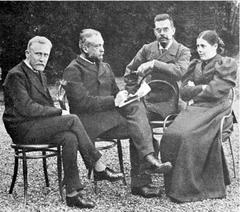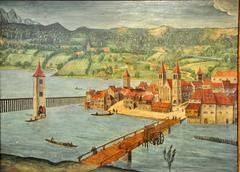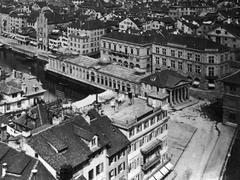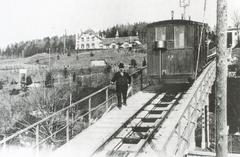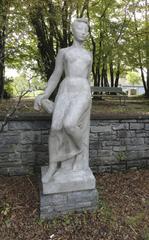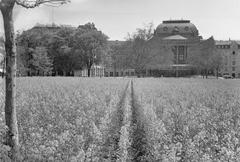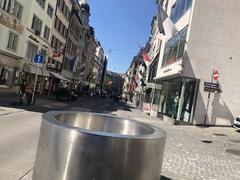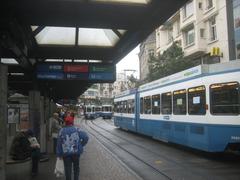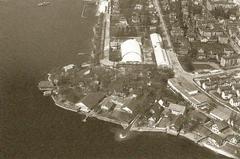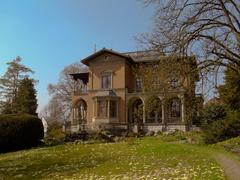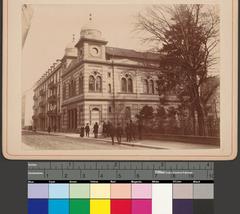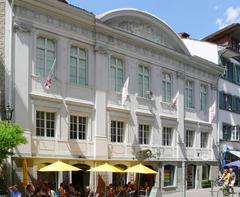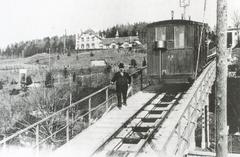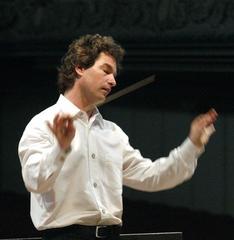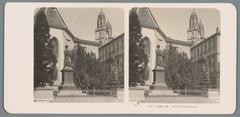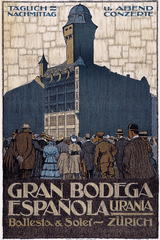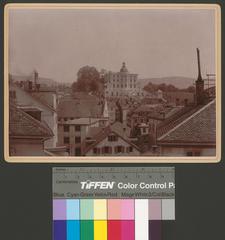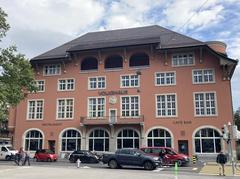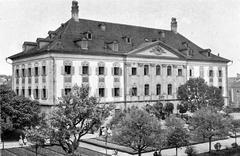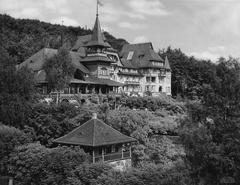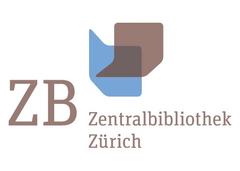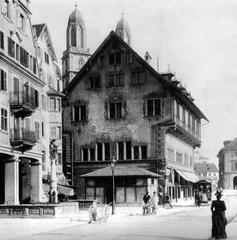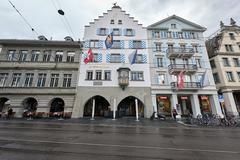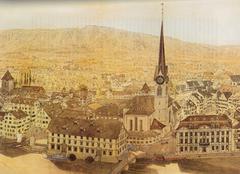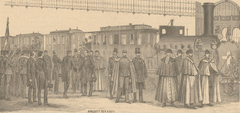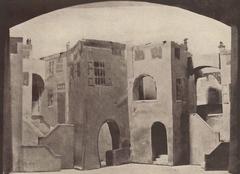Phonogram Archives of the University of Zurich: Visiting Guide, Tickets, and Hours
Date: 14/06/2025
Introduction
The Phonogram Archives of the University of Zurich are a pillar of Switzerland’s linguistic and cultural preservation. Established in 1909, they stand as one of Europe’s oldest institutions dedicated to the systematic collection of spoken language recordings. The archives serve as a hub for research, education, and public engagement, offering a rare opportunity to explore the evolution of Swiss German dialects and a diverse range of international languages through preserved audio. Visitors can expect a thoughtfully curated experience, with collections spanning from fragile wax cylinders to modern digital files, all set within an accessible university setting in the heart of Zurich. Whether you are a linguist, student, or culture enthusiast, these archives present an unparalleled journey into Switzerland’s auditory heritage (Phonogram Archives UZH, UZH Phonetics Lab History, Swiss Dialects Blog).
Historical Overview
Early Foundations (1909–1930s)
Founded through the initiative of Prof. Dr. Albert Bachmann, the Phonogram Archives quickly became a pioneer in recording and analyzing Swiss German dialects. Early recordings were made using a Vienna-imported phonograph, capturing linguistic features that had previously only been accessible via transcription. This period established the archive’s longstanding commitment to documenting language diversity (Phonogram Archives UZH).
Institutional Growth and Methodological Innovation (1930s–1950s)
Under Prof. Dr. Eugen Dieth, the archives expanded their scope to include multiple Swiss and international languages. Dieth’s appointment as director in 1934 and his founding of the Phonetics Laboratory in 1935 marked a period of institutional stability and academic rigor. Key innovations included the “Dieth-Schrift” for Swiss German transcription and the adoption of kymography for acoustic analysis, positioning Zurich as a leader in phonetics research (UZH Phonetics Lab History).
Diversification and Modernization (1950s–Present)
From the 1950s onward, the archives diversified their collections to encompass minority and non-European languages, furthering their role in both research and public education. Advances in technology led to the digitization of recordings, while integration into the Institute of Computational Linguistics facilitated state-of-the-art research and broader public access. Online catalogues now provide global reach, with ongoing projects in digitization and computational analysis (UZH Phonetics Lab History, Phonogram Archives UZH).
Cultural and Academic Significance
The archives are a cornerstone for Swiss dialectology and an international reference for the study of linguistic change, dialect contact, and phonetic variation. Their collections inform research, teaching, and exhibitions, supporting efforts to preserve endangered dialects and promote cultural identity in a multilingual nation (Swiss Dialects Blog).
Visitor Information
Location and Access
The Phonogram Archives are located at the University of Zurich’s main building, Kollegiengebäude (KOL), Office KOL-H-318, Strickhofstrasse 39, CH-8057 Zurich. The site is easily accessible via public transport (tram and bus lines), and the building is fully wheelchair accessible (Phonogram Archives UZH).
Visiting Hours and Admission
- Visits: By appointment only, typically Monday to Friday, 9:00 AM – 5:00 PM.
- Admission: Free for academic visitors, students, and faculty. Some guided tours or special events may carry a nominal fee. Always book in advance.
Contact the archive at [email protected] or +41 (0)44 634 39 76 to arrange your visit.
Guided Tours and Special Events
Guided tours are available upon request and can be tailored to specific interests, including demonstrations of historic recording equipment and curated listening sessions. Workshops and public lectures are occasionally offered—check the archives’ website for current events and exhibitions.
Accessibility
The archives are committed to accessibility. The main entrance, elevators, and restrooms are suitable for visitors with mobility challenges. Notify staff ahead of your visit for any special accommodations.
What to Expect During Your Visit
- Collection Highlights: Wax cylinders, shellac discs, magnetic tapes, and digital files documenting Swiss German, other Swiss languages, and global linguistic traditions.
- Interactive Displays: Demonstrations of historic playback devices and opportunities to listen to selected recordings.
- Digital Resources: Onsite and online access to the digital catalogue and geo-referenced maps of recordings.
- Research Support: Facilities for academic research, including listening stations, a reference library, and access to staff expertise.
Visitor Tips
- Advance Booking: Essential for all visits.
- Language Support: Staff speak German and English; some assistance in French and Italian is available.
- Photography: Permitted with prior approval.
- Amenities: Nearby cafes, restrooms, and guest Wi-Fi are available within the university building.
- Weather: Zurich weather is changeable—plan accordingly (Global Highlights).
Nearby Attractions in Zurich
Combine your visit with these sites for a full cultural experience:
- Swiss National Museum: A comprehensive look at Swiss history (Swiss National Museum).
- Old Town (Altstadt): Historic streets and vibrant cafes.
- University Botanical Garden & Kunsthaus Zurich: Ideal for art and nature lovers.
Digital Access and Further Resources
- Explore the archives’ digital catalogue.
- Publications and research materials are available through the archives’ webshop (German only).
- Remote access to audio samples and metadata supports global research.
Frequently Asked Questions (FAQ)
Q: Can I visit without an appointment?
A: No, visits are strictly by appointment.
Q: Is there an admission fee?
A: General visits for academic or educational purposes are free. Fees may apply for tours or special programs.
Q: Are guided tours available?
A: Yes, upon request and subject to availability.
Q: Can I listen to archival recordings onsite or online?
A: Yes, through listening stations onsite; many recordings are also available online.
Q: Is the archive accessible for people with disabilities?
A: Yes, the building is fully accessible.
Q: Can I take photographs or record audio?
A: With advance permission from staff.
Contact Information
- Phonogram Archives, University of Zurich
- Address: Kollegiengebäude (KOL), Office KOL-H-318, Strickhofstrasse 39, CH-8057 Zurich
- Email: [email protected]
- Phone: +41 (0)44 634 39 76
- Official website
Visitor Recommendations
The Phonogram Archives are a must-visit for those interested in Swiss culture, linguistics, and history. Secure your appointment in advance, explore online resources before your visit, and consider combining your trip with other Zurich attractions for a rich cultural day. Stay connected through the archive’s website and social channels, and download the Audiala app for curated audio experiences linked to Swiss heritage.
Sources and Further Reading
- Phonogram Archives UZH
- UZH Phonetics Lab History
- Swiss Dialects Blog
- Swiss National Museum
- Global Highlights
